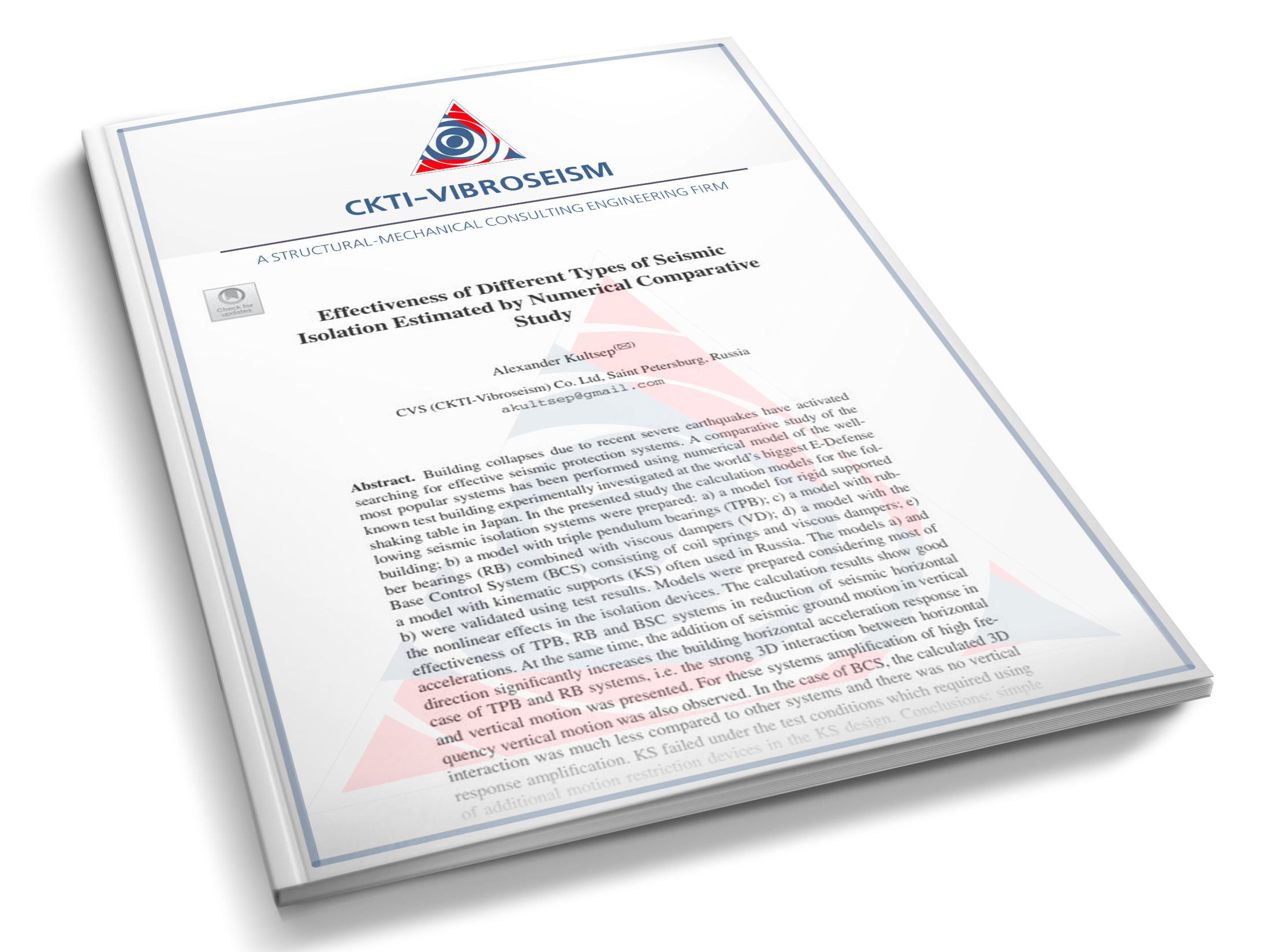Effectiveness of Different Types of Seismic Isolation Estimated by Numerical Comparative Study
18th World Conference on Seismic Isolation

- Авторы: : Кульцеп А.В. [Alexander V. Kultsep]
- Редактор: English
- Страницы: 6
- ISBN: 978-3-031-66888-3
- №: 60
- Библиотека: Conference Papers
- Год: 2024
- Файл: 18WCSI_Kultsep
Просмотры: 1880
Abstract. Building collapses due to recent severe earthquakes have activated searching for effective seismic protection systems. A comparative study of the most popular systems has been performed using numerical model of the wellknown test building experimentally investigated at the world’s biggest E-Defense shaking table in Japan. In the presented study the calculation models for the following seismic isolation systems were prepared:
a) a model for rigid supported building;
b) a model with triple pendulum bearings (TPB);
c) a model with rubber bearings (RB) combined with viscous dampers (VD);
d) a model with the Base Control System (BCS) consisting of coil springs and viscous dampers;
e) a model with kinematic supports (KS) often used in Russia.
The models a) and b) were validated using test results. Models were prepared considering most of the nonlinear effects in the isolation devices. The calculation results show good effectiveness of TPB, RB and BSC systems in reduction of seismic horizontal accelerations. At the same time, the addition of seismic ground motion in vertical direction significantly increases the building horizontal acceleration response in case of TPB and RB systems, i.e. the strong 3D interaction between horizontal and vertical motion was presented. For these systems amplification of high frequency vertical motion was also observed. In the case of BCS, the calculated 3D interaction was much less compared to other systems and there was no vertical response amplification. KS failed under the test conditions which required using of additional motion restriction devices in the KS design. Conclusions: simple realistic models for different isolation systems have been proposed. TPB, RB-VD have good performance, BCS has been selected as the most preferable system.
 ООО «ЦКТИ-Вибросейсм»
ООО «ЦКТИ-Вибросейсм» 
